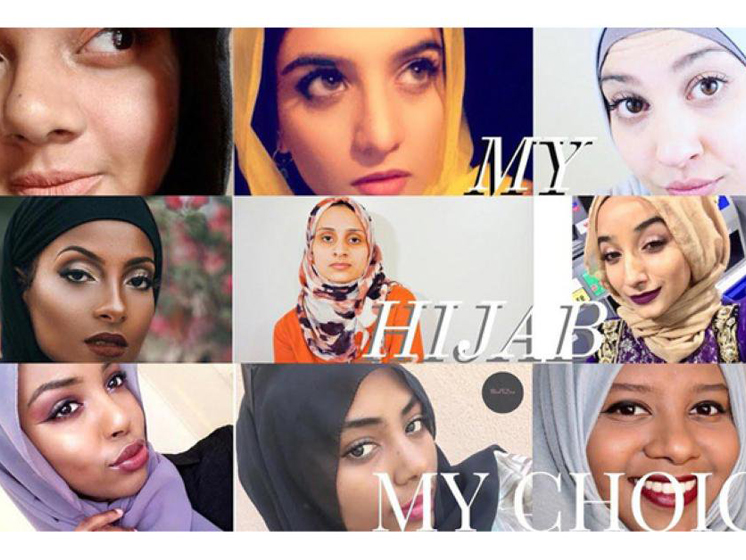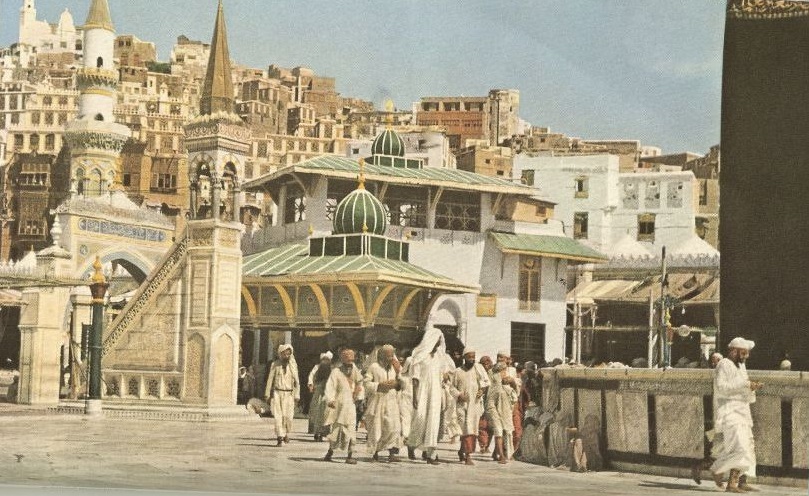 source: saudigazette.com.sa
source: saudigazette.com.sa
Hijab Offers Liberation, Admiration And Security (headscraf)“MUSLIM women, along with followers of many other religions, choose to wear the hijab. Many find liberation, respect, and security through wearing it.”
That was the British Foreign Office’s message to staff as it invited them to try out wearing the headscarf for the day to celebrate World Hijab Day this month.
The occasion – that I’d never heard of until this year – was founded by New Yorker Nazma Khan five years ago. Taking place on Feb. 1 each year in 140 countries, organizers say the day is intended to encourage women of all religions and backgrounds to wear and experience the hijab.
Senator Roxanne J Persaud from New York said that World Hijab Day presented “an opportunity for us to learn about this religious custom, thus leading to less discrimination for the women who wear hijab.”
She also urged people to “demonstrate religious freedom by exercising tolerance and embracing the richness that diversity brings.
Former Mrs. Universe, Carol Lee, from Malaysia explained that she supported the occasion because she hoped women would not be discriminated for wearing the headscarf adding: “A woman should not be criticized or looked upon differently just because she chooses to wear a hijab.” As we said before Hijab Offers Liberation, Admiration And Security
Meanwhile, in the UK, Birmingham City University hosted a World Hijab Day event and bloggers including London-based Humaira of the MoneySavvyMuslim site, shared their Hijab Stories. The leader of the Scottish National Party, Nicola Sturgeon, is also pictured on the World Hijab Day website with a banner saying “Women should be able to observe their faith and wear what they choose.”
But while women in Iran burned their hijabs in protest at being forced to wear them or face the threat of jail, the marking of the occasion within the British civil service led to a backlash with many saying the headscarf is a clear sign of oppression.
Anti-hijab activist Masih Alinejad told Reuters: ‘We are fighting against the most visible symbol of oppression. These women are saying, ‘It is enough – it is the 21st century and we want to be our true selves.’”
British Conservative Member of Parliament Andrew Bridgen also expressed reservations about the event.
He said: ‘I’d like to know whose bright idea this was. It is ridiculous, a complete waste of taxpayers’ money and not the business of a government department. I can’t see the Foreign Office promoting Christianity or the handing out of crosses.”
But it was Muslim grandmother Ahlam, from London who called into a show hosted by Maajid Nawaz’s on UK radio station LBC that really stirred things up.
Saying she was “disappointed at what she was seeing in this country,” she said: “Hijab is a choice after a certain age, and it hasn’t been proven anywhere that it is compulsory.”
Ahlam also mentioned that the hijab saddened her and said she didn’t want her granddaughter to go through what she had to go through.
She went on to mention that she had to fight and “go through continuous hunger strikes” in order to stop being forced to wear the headscarf adding that the hijab was “a barrier for society”
Nawaz asked Ahlam to explain the struggles she had gone through.
She said that she “had to fight to become the woman I am today.” She continued, “I had to go through continuous hunger strikes” in order to stop being forced to wear her headscarf. She warned that the headscarf was “a barrier for society” which meant that some Muslims would “never integrate.”
Activist Nawaz, the founding chairman of Quilliam, a counter-extremism think-tank that seeks to challenge the narratives of extremists, praised Ahlam for speaking out, telling listeners that “that’s what a feminist sounds like.”
What do you guys think? Hijab Offers Liberation, Admiration And Security? And do you think encouraging events such as World Hijab Day is a way to boost integration and understanding? I’d love to hear your thoughts.
Umrah Packages | Hajj Packages | Ramdan Umrah Packages | December Umrah Packages
source: saudigazette.com.sa
